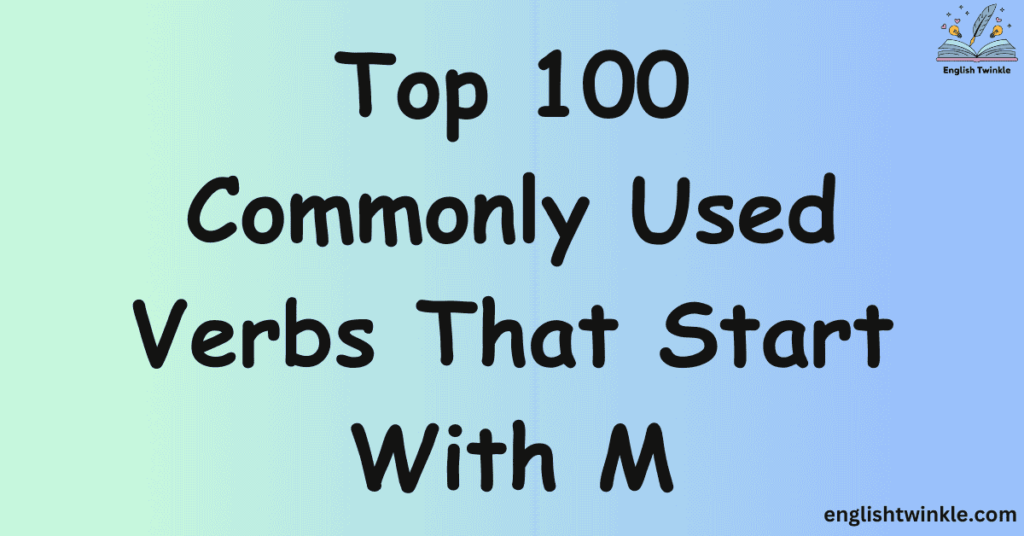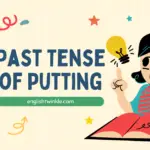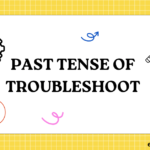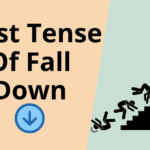In the vast ocean of English vocabulary, verbs play a crucial role in bringing our sentences to life. They’re the engines that drive our communication, allowing us to express actions, states of being, and the passage of time. Among these, verbs that start with M hold a special place, offering a rich array of meanings and applications. This guide will dive deep into the world of M verbs, exploring their uses, significance, and impact on language development.
Understanding Verbs: The Powerhouse of Language
Before we delve into our list of verbs that starting with M, let’s refresh our understanding of verbs and their function in language.
Verbs are words that express:
- Actions (e.g., move, make, mend)
- States of being (e.g., matter, mean)
- Occurrences (e.g., materialize, manifest)
They’re essential for forming complete sentences and conveying meaning. Verbs can be categorized into three main types:
- Action verbs: Describe physical or mental actions
- Linking verbs: Connect the subject to additional information
- Helping verbs: Assist the main verb in expressing tense or mood
Understanding these distinctions is crucial when learning verbs that start with M or any other letter.
Top 100 Commonly Used Verbs Starting with M
Now, let’s explore our comprehensive list of 100 common verbs that start with M. We’ll break them down into categories for easier understanding and application.
Action Verbs Starting with M
Action verbs are the workhorses of our language, describing physical and mental activities. Here’s a table of 70 action verbs starting with M, along with their meanings, examples, and synonyms:
| Verb | Meaning | Example | Synonyms | ||||||||||||||||||||||||||||||||||||||||||||||||||||||||||||||||||||||||||||||||||||||||||||||||||||||||||||||||||||||||||||||||||||
|---|---|---|---|---|---|---|---|---|---|---|---|---|---|---|---|---|---|---|---|---|---|---|---|---|---|---|---|---|---|---|---|---|---|---|---|---|---|---|---|---|---|---|---|---|---|---|---|---|---|---|---|---|---|---|---|---|---|---|---|---|---|---|---|---|---|---|---|---|---|---|---|---|---|---|---|---|---|---|---|---|---|---|---|---|---|---|---|---|---|---|---|---|---|---|---|---|---|---|---|---|---|---|---|---|---|---|---|---|---|---|---|---|---|---|---|---|---|---|---|---|---|---|---|---|---|---|---|---|---|---|---|---|---|---|---|
| Make | To create or produce | She made a delicious cake for the party. | Create, produce, construct | ||||||||||||||||||||||||||||||||||||||||||||||||||||||||||||||||||||||||||||||||||||||||||||||||||||||||||||||||||||||||||||||||||||
| Move | To change position or location | We need to move the furniture before painting. | Relocate, shift, transfer | ||||||||||||||||||||||||||||||||||||||||||||||||||||||||||||||||||||||||||||||||||||||||||||||||||||||||||||||||||||||||||||||||||||
| Manage | To be in charge of; handle | He manages a team of 50 employees. | Supervise, direct, oversee | ||||||||||||||||||||||||||||||||||||||||||||||||||||||||||||||||||||||||||||||||||||||||||||||||||||||||||||||||||||||||||||||||||||
| Maintain | To keep in good condition | Regular exercise helps maintain good health. | Preserve, sustain, uphold | ||||||||||||||||||||||||||||||||||||||||||||||||||||||||||||||||||||||||||||||||||||||||||||||||||||||||||||||||||||||||||||||||||||
| Measure | To determine the size or amount | The tailor measured the fabric for the dress. | Gauge, assess, quantify | ||||||||||||||||||||||||||||||||||||||||||||||||||||||||||||||||||||||||||||||||||||||||||||||||||||||||||||||||||||||||||||||||||||
| Mention | To refer to briefly | She mentioned her new job during dinner. | Cite, refer to, bring up | ||||||||||||||||||||||||||||||||||||||||||||||||||||||||||||||||||||||||||||||||||||||||||||||||||||||||||||||||||||||||||||||||||||
| Manipulate | To control or influence cleverly | The politician tried to manipulate public opinion. | Influence, control, maneuver | ||||||||||||||||||||||||||||||||||||||||||||||||||||||||||||||||||||||||||||||||||||||||||||||||||||||||||||||||||||||||||||||||||||
| Manufacture | To make or produce on a large scale | This factory manufactures automobiles. | Produce, fabricate, create | ||||||||||||||||||||||||||||||||||||||||||||||||||||||||||||||||||||||||||||||||||||||||||||||||||||||||||||||||||||||||||||||||||||
| Match | To be equal or similar to | His skills match the job requirements perfectly. | Correspond, fit, suit | ||||||||||||||||||||||||||||||||||||||||||||||||||||||||||||||||||||||||||||||||||||||||||||||||||||||||||||||||||||||||||||||||||||
| Meditate | To engage in contemplation | She meditates every morning for inner peace. | Reflect, ponder, contemplate | ||||||||||||||||||||||||||||||||||||||||||||||||||||||||||||||||||||||||||||||||||||||||||||||||||||||||||||||||||||||||||||||||||||
| Memorize | To commit to memory | Students must memorize important dates for the history exam. | Learn by heart, retain, remember | ||||||||||||||||||||||||||||||||||||||||||||||||||||||||||||||||||||||||||||||||||||||||||||||||||||||||||||||||||||||||||||||||||||
| Mend | To repair | Grandma taught me how to mend torn clothes. | Fix, repair, patch | ||||||||||||||||||||||||||||||||||||||||||||||||||||||||||||||||||||||||||||||||||||||||||||||||||||||||||||||||||||||||||||||||||||
| Merge | To combine or unite | The two companies decided to merge their operations. | Combine, unite, fuse | ||||||||||||||||||||||||||||||||||||||||||||||||||||||||||||||||||||||||||||||||||||||||||||||||||||||||||||||||||||||||||||||||||||
| Mix | To combine or blend | The chef mixed the ingredients to make the batter. | Blend, combine, mingle | ||||||||||||||||||||||||||||||||||||||||||||||||||||||||||||||||||||||||||||||||||||||||||||||||||||||||||||||||||||||||||||||||||||
| Modify | To change or alter | We need to modify the plan to accommodate new information. | Alter, adjust, adapt | ||||||||||||||||||||||||||||||||||||||||||||||||||||||||||||||||||||||||||||||||||||||||||||||||||||||||||||||||||||||||||||||||||||
| Monitor | To observe or check | Nurses monitor patients’ vital signs regularly. | Observe, check, track | ||||||||||||||||||||||||||||||||||||||||||||||||||||||||||||||||||||||||||||||||||||||||||||||||||||||||||||||||||||||||||||||||||||
| Motivate | To provide with incentive | Good leaders know how to motivate their team. | Inspire, encourage, stimulate | ||||||||||||||||||||||||||||||||||||||||||||||||||||||||||||||||||||||||||||||||||||||||||||||||||||||||||||||||||||||||||||||||||||
| Mount | To climb or ascend | The hikers mounted the steep trail with determination. | Climb, ascend, scale | ||||||||||||||||||||||||||||||||||||||||||||||||||||||||||||||||||||||||||||||||||||||||||||||||||||||||||||||||||||||||||||||||||||
| Multiply | To increase in number or amount | Bacteria can multiply rapidly under the right conditions. | Increase, proliferate, grow | ||||||||||||||||||||||||||||||||||||||||||||||||||||||||||||||||||||||||||||||||||||||||||||||||||||||||||||||||||||||||||||||||||||
| Murmur | To speak in a low, indistinct voice | She murmured a quiet “thank you” as she left. | Whisper, mutter, mumble | ||||||||||||||||||||||||||||||||||||||||||||||||||||||||||||||||||||||||||||||||||||||||||||||||||||||||||||||||||||||||||||||||||||
| Mutter | To speak indistinctly in a low voice | He muttered something under his breath. | Mumble, murmur, grumble | ||||||||||||||||||||||||||||||||||||||||||||||||||||||||||||||||||||||||||||||||||||||||||||||||||||||||||||||||||||||||||||||||||||
| Magnify | To make larger or more prominent | The microscope magnifies tiny organisms. | Enlarge, amplify, exaggerate | ||||||||||||||||||||||||||||||||||||||||||||||||||||||||||||||||||||||||||||||||||||||||||||||||||||||||||||||||||||||||||||||||||||
| Maneuver | To move skillfully or strategically | The driver maneuvered through the busy traffic. | Navigate, manipulate, steer | ||||||||||||||||||||||||||||||||||||||||||||||||||||||||||||||||||||||||||||||||||||||||||||||||||||||||||||||||||||||||||||||||||||
| March | To walk in a steady, rhythmic way | The soldiers marched in perfect formation. | Stride, parade, tramp | ||||||||||||||||||||||||||||||||||||||||||||||||||||||||||||||||||||||||||||||||||||||||||||||||||||||||||||||||||||||||||||||||||||
| Mark | To make a visible impression on | The teacher marked the essays with red pen. | Label, indicate, denote | ||||||||||||||||||||||||||||||||||||||||||||||||||||||||||||||||||||||||||||||||||||||||||||||||||||||||||||||||||||||||||||||||||||
| Marvel | To be filled with wonder or astonishment | Tourists marvel at the ancient architecture. | Wonder, admire, be amazed | ||||||||||||||||||||||||||||||||||||||||||||||||||||||||||||||||||||||||||||||||||||||||||||||||||||||||||||||||||||||||||||||||||||
| Mask | To conceal or disguise | She masked her disappointment with a smile. | Hide, conceal, disguise | ||||||||||||||||||||||||||||||||||||||||||||||||||||||||||||||||||||||||||||||||||||||||||||||||||||||||||||||||||||||||||||||||||||
| Master | To gain complete knowledge or skill in | It takes years to master a musical instrument. | Perfect, excel at, become proficient in | ||||||||||||||||||||||||||||||||||||||||||||||||||||||||||||||||||||||||||||||||||||||||||||||||||||||||||||||||||||||||||||||||||||
| Materialize | To come into existence | His dreams of success finally materialized. | Appear, emerge, come to fruition | ||||||||||||||||||||||||||||||||||||||||||||||||||||||||||||||||||||||||||||||||||||||||||||||||||||||||||||||||||||||||||||||||||||
| Mature | To become fully grown or developed | Fine wine matures with age. | Grow up, develop, ripen | ||||||||||||||||||||||||||||||||||||||||||||||||||||||||||||||||||||||||||||||||||||||||||||||||||||||||||||||||||||||||||||||||||||
| Maximize | To make as large or great as possible | We need to maximize our profits this quarter. | Optimize, increase, enhance | ||||||||||||||||||||||||||||||||||||||||||||||||||||||||||||||||||||||||||||||||||||||||||||||||||||||||||||||||||||||||||||||||||||
| Mean | To intend or signify | What do you mean by that statement? | Signify, indicate, imply | ||||||||||||||||||||||||||||||||||||||||||||||||||||||||||||||||||||||||||||||||||||||||||||||||||||||||||||||||||||||||||||||||||||
| Measure | To ascertain the size, amount, or degree of | The surveyor measured the dimensions of the plot. | Gauge, quantify, evaluate | ||||||||||||||||||||||||||||||||||||||||||||||||||||||||||||||||||||||||||||||||||||||||||||||||||||||||||||||||||||||||||||||||||||
| Meddle | To interfere or intervene without right or invitation | Stop meddling in other people’s affairs. | Interfere, intrude, intervene | ||||||||||||||||||||||||||||||||||||||||||||||||||||||||||||||||||||||||||||||||||||||||||||||||||||||||||||||||||||||||||||||||||||
| Mediate | To intervene between conflicting parties to promote reconciliation | The diplomat mediated the peace talks. | Arbitrate, intercede, reconcile | ||||||||||||||||||||||||||||||||||||||||||||||||||||||||||||||||||||||||||||||||||||||||||||||||||||||||||||||||||||||||||||||||||||
| Melt | To change from a solid to a liquid state | The ice cream melted in the hot sun. | Liquefy, dissolve, thaw | ||||||||||||||||||||||||||||||||||||||||||||||||||||||||||||||||||||||||||||||||||||||||||||||||||||||||||||||||||||||||||||||||||||
| Memorialize | To commemorate or honor the memory of | The statue memorializes the fallen soldiers. | Commemorate, honor, remember | ||||||||||||||||||||||||||||||||||||||||||||||||||||||||||||||||||||||||||||||||||||||||||||||||||||||||||||||||||||||||||||||||||||
| Mend | To repair something that is broken or damaged | She mended the torn curtain. | Fix, repair, patch | ||||||||||||||||||||||||||||||||||||||||||||||||||||||||||||||||||||||||||||||||||||||||||||||||||||||||||||||||||||||||||||||||||||
| Mention | To refer to or speak about briefly | He mentioned the upcoming meeting in passing. | Refer to, bring up, cite | ||||||||||||||||||||||||||||||||||||||||||||||||||||||||||||||||||||||||||||||||||||||||||||||||||||||||||||||||||||||||||||||||||||
| Merge | To combine or blend | The two rivers merge at this point. | Unite, fuse, combine | ||||||||||||||||||||||||||||||||||||||||||||||||||||||||||||||||||||||||||||||||||||||||||||||||||||||||||||||||||||||||||||||||||||
| Merit | To deserve or be worthy of | Her hard work merits recognition. | Deserve, warrant, earn | ||||||||||||||||||||||||||||||||||||||||||||||||||||||||||||||||||||||||||||||||||||||||||||||||||||||||||||||||||||||||||||||||||||
| Migrate | To move from one place to another | Birds migrate south for the winter. | Relocate, move, emigrate | ||||||||||||||||||||||||||||||||||||||||||||||||||||||||||||||||||||||||||||||||||||||||||||||||||||||||||||||||||||||||||||||||||||
| Mimic | To imitate or copy | The parrot can mimic human speech. | Imitate, copy, emulate | ||||||||||||||||||||||||||||||||||||||||||||||||||||||||||||||||||||||||||||||||||||||||||||||||||||||||||||||||||||||||||||||||||||
| Minimize | To reduce to the smallest possible amount or degree | We need to minimize our expenses. | Reduce, decrease, lessen | ||||||||||||||||||||||||||||||||||||||||||||||||||||||||||||||||||||||||||||||||||||||||||||||||||||||||||||||||||||||||||||||||||||
| Mirror | To reflect or imitate | The calm lake mirrored the surrounding mountains. | Reflect, imitate, echo | ||||||||||||||||||||||||||||||||||||||||||||||||||||||||||||||||||||||||||||||||||||||||||||||||||||||||||||||||||||||||||||||||||||
| Misinterpret | To understand or explain incorrectly | He misinterpreted her silence as agreement. | Misconstrue, misunderstand, misread | ||||||||||||||||||||||||||||||||||||||||||||||||||||||||||||||||||||||||||||||||||||||||||||||||||||||||||||||||||||||||||||||||||||
| Miss | To fail to hit, reach, or meet | The arrow missed the target. | Fail to hit, overlook, bypass | ||||||||||||||||||||||||||||||||||||||||||||||||||||||||||||||||||||||||||||||||||||||||||||||||||||||||||||||||||||||||||||||||||||
| Mistake | To understand or identify incorrectly | I mistook him for his twin brother. | Confuse, misidentify, misunderstand | ||||||||||||||||||||||||||||||||||||||||||||||||||||||||||||||||||||||||||||||||||||||||||||||||||||||||||||||||||||||||||||||||||||
| Mitigate | To make less severe or painful | The medication helped mitigate her symptoms. | Alleviate, ease, lessen | ||||||||||||||||||||||||||||||||||||||||||||||||||||||||||||||||||||||||||||||||||||||||||||||||||||||||||||||||||||||||||||||||||||
| Mix | To combine or blend | The bartender mixed several ingredients to create the cocktail. | Blend, combine, mingle | ||||||||||||||||||||||||||||||||||||||||||||||||||||||||||||||||||||||||||||||||||||||||||||||||||||||||||||||||||||||||||||||||||||
| Mock | To ridicule or make fun of | The students mocked the substitute teacher. | Ridicule, tease, mimic | ||||||||||||||||||||||||||||||||||||||||||||||||||||||||||||||||||||||||||||||||||||||||||||||||||||||||||||||||||||||||||||||||||||
| Model | To display or show by example | The teacher modeled the correct pronunciation. | Demonstrate, exemplify, showcase | ||||||||||||||||||||||||||||||||||||||||||||||||||||||||||||||||||||||||||||||||||||||||||||||||||||||||||||||||||||||||||||||||||||
| Moderate | To make less extreme or intense | The referee tried to moderate the heated argument. | Temper, soften, tone down | ||||||||||||||||||||||||||||||||||||||||||||||||||||||||||||||||||||||||||||||||||||||||||||||||||||||||||||||||||||||||||||||||||||
| Modernize | To make modern or up to date | The company plans to modernize its production facilities. | Update, renovate, upgrade | ||||||||||||||||||||||||||||||||||||||||||||||||||||||||||||||||||||||||||||||||||||||||||||||||||||||||||||||||||||||||||||||||||||
| Modify | To make partial changes to | We need to modify our approach based on the new data. | Alter, adjust, adapt | ||||||||||||||||||||||||||||||||||||||||||||||||||||||||||||||||||||||||||||||||||||||||||||||||||||||||||||||||||||||||||||||||||||
| Monitor | To observe or check the progress or quality of | Doctors closely monitor patients in intensive care. | Observe, check, track | ||||||||||||||||||||||||||||||||||||||||||||||||||||||||||||||||||||||||||||||||||||||||||||||||||||||||||||||||||||||||||||||||||||
| Monopolize | To obtain exclusive possession or control of | The company tried to monopolize the market. | Dominate, control, corner | ||||||||||||||||||||||||||||||||||||||||||||||||||||||||||||||||||||||||||||||||||||||||||||||||||||||||||||||||||||||||||||||||||||
| Morph | To change form or character | The caterpillar morphs into a butterfly. | Transform, metamorphose, change | ||||||||||||||||||||||||||||||||||||||||||||||||||||||||||||||||||||||||||||||||||||||||||||||||||||||||||||||||||||||||||||||||||||
| Motivate | To stimulate interest or enthusiasm for a task | Good leaders know how to motivate their team. | Inspire, encourage, stimulate | ||||||||||||||||||||||||||||||||||||||||||||||||||||||||||||||||||||||||||||||||||||||||||||||||||||||||||||||||||||||||||||||||||||
| Mourn | To feel or express deep sorrow | The nation mourned the loss of its beloved leader. | Grieve, lament, bewail | ||||||||||||||||||||||||||||||||||||||||||||||||||||||||||||||||||||||||||||||||||||||||||||||||||||||||||||||||||||||||||||||||||||
| Move | To change position or location | We need to move the furniture before painting. | Relocate, shift, transfer | ||||||||||||||||||||||||||||||||||||||||||||||||||||||||||||||||||||||||||||||||||||||||||||||||||||||||||||||||||||||||||||||||||||
| Mow | To cut down grass or grain | He mows the lawn every weekend. | Cut, trim, clip | ||||||||||||||||||||||||||||||||||||||||||||||||||||||||||||||||||||||||||||||||||||||||||||||||||||||||||||||||||||||||||||||||||||
| Multiply | To increase greatly in number or quantity | Rabbits multiply quickly in favorable conditions. | Increase, proliferate, grow | ||||||||||||||||||||||||||||||||||||||||||||||||||||||||||||||||||||||||||||||||||||||||||||||||||||||||||||||||||||||||||||||||||||
| Mumble | To speak indistinctly in a low voice. | He mumbled something I couldn’t understand. | Mutter, murmur, whisper | ||||||||||||||||||||||||||||||||||||||||||||||||||||||||||||||||||||||||||||||||||||||||||||||||||||||||||||||||||||||||||||||||||||
| Munch | To chew steadily or vigorously | The kids munched on popcorn during the movie. | Chew, crunch, nibble | ||||||||||||||||||||||||||||||||||||||||||||||||||||||||||||||||||||||||||||||||||||||||||||||||||||||||||||||||||||||||||||||||||||
| Murder | To kill unlawfully and with premeditation | The detective tried to solve the murder case. | Kill, slay, assassinate | ||||||||||||||||||||||||||||||||||||||||||||||||||||||||||||||||||||||||||||||||||||||||||||||||||||||||||||||||||||||||||||||||||||
| Muse | To think or meditate in silence | She mused over the possibilities for her future. | Ponder, contemplate, reflect | ||||||||||||||||||||||||||||||||||||||||||||||||||||||||||||||||||||||||||||||||||||||||||||||||||||||||||||||||||||||||||||||||||||
| Muster | To gather or summon | The general mustered his troops for battle. | Gather, assemble, collect |
| Word | Definition | Example | Synonyms |
|---|---|---|---|
| Materialize | To appear or come into existence | His dreams of success finally materialized. | Appear, emerge, come to fruition |
| Morph | To change form or character | The caterpillar morphed into a beautiful butterfly. | Transform, metamorphose, change |
| Mature | To become fully developed | As she matured, her perspective on life changed. | Grow up, develop, ripen |
| Metamorphose | To change completely in form or nature | The company metamorphosed from a small startup to a global corporation. | Transform, change, evolve |
| Manifest | To become apparent or visible | His talent for music manifested at an early age. | Appear, emerge, become evident |
Helping Verbs Starting with M
Helping verbs, also known as auxiliary verbs, assist the main verb in a sentence. Here are the 5 helping verbs that start with M:
| Modal Verb | Usage | Example | Synonyms |
|---|---|---|---|
| May | Express possibility or permission | You may leave early if you finish your work. | Might, can, could |
| Might | Express possibility or uncertainty | It might rain later, so take an umbrella. | May, could, possibly |
| Must | Express necessity or strong recommendation | You must arrive on time for the interview. | Have to, need to, ought to |
| Mustn’t | Express prohibition (negative form of must) | You mustn’t reveal this secret to anyone. | Must not, cannot, should not |
| Mightn’t | Contraction of “might not” | He mightn’t come to the party after all. | May not, might not, possibly won’t |
Phrasal Verbs with M
Phrasal verbs are combinations of verbs and prepositions or adverbs that create a new meaning. Here are 20 common phrasal verbs starting with M:
Here’s a table with the information you provided:
| Phrasal Verb | Meaning | Example | Synonyms |
|---|---|---|---|
| Make up | Invent or reconcile | She made up a story to explain her tardiness. | Invent, fabricate, reconcile |
| Make out | Perceive or understand | I couldn’t make out what he was saying in the noisy room. | Perceive, discern, comprehend |
| Make for | Head towards | We made for the nearest shelter when it started raining. | Head towards, go towards, aim for |
| Make of | Understand or interpret | What do you make of his strange behavior? | Interpret, understand, construe |
| Move on | Progress or leave behind | It’s time to move on from this failed project. | Progress, advance, proceed |
| Move in | Begin living in a new place | They plan to move in to their new house next month. | Occupy, inhabit, settle in |
| Move out | Leave one’s residence | He moved out of his parents’ house after college. | Leave, vacate, depart |
| Mix up | Confuse or blend | I always mix up their names. | Confuse, muddle, blend |
| Mark down | Reduce in price | The store marked down all summer clothes. | Discount, reduce, lower |
| Mess around | Waste time or play | Stop messing around and get to work! | Fool around, play, waste time |
| Make do | Manage with available resources | We’ll have to make do with what we have. | Cope, manage, get by |
| Make over | Renovate or transform | They made over the entire house. | Renovate, transform, remodel |
| Measure up | Meet a standard | His performance didn’t measure up to our expectations. | Meet standards, fulfill expectations, be adequate |
| Melt away | Gradually disappear | The crowd melted away after the concert. | Disappear, vanish, dissipate |
| Map out | Plan in detail | We need to map out our strategy for the upcoming campaign. | Plan, outline, chart |
| Mull over | Consider deeply | I need time to mull over your proposal. | Ponder, contemplate, reflect on |
| Muscle in | Intrude or interfere | He tried to muscle in on our conversation. | Intrude, interfere, butt in |
| Make off | Leave hurriedly | The thief made off with the stolen goods. | Flee, escape, run away |
| Make out | Manage or succeed | How are you making out with your new job? | Manage, cope, fare |
| Mop up | Clean up or finish off | The team stayed late to mop up the remaining work. | Clean up, finish off, complete |
Practical Applications of M Verbs
Understanding and using verbs that start with M can significantly enhance your language skills. Here’s how you can apply them in various contexts:
Creative Writing
In creative writing, M verbs can add vivid detail and action to your narratives. For example:
The leaves murmured in the gentle breeze as Sarah meandered through the park. She marveled at the beauty around her, savoring every moment. As she mused over her recent experiences, a sudden inspiration materialized in her mind. She made for the nearest bench, eager to mold her thoughts into a story.
By using diverse verbs like “murmured,” “meandered,” “marveled,” “mused,” and “materialized,” the writing becomes more engaging and descriptive. These verbs starting with M paint a vivid picture and bring the scene to life.
Professional Communication
In business settings, precise verb usage can make your communication more effective. Consider these examples:
- Instead of “do,” use “manage”: “I manage the marketing team.”
- Replace “change” with “modify”: “We need to modify our approach to meet the new market demands.”
- Use “maintain” instead of “keep”: “It’s crucial to maintain good relationships with clients.”
- Instead of “increase,” use “maximize”: “Our goal is to maximize profits while minimizing expenses.”
- Replace “think about” with “mull over”: “Let’s mull over these proposals before making a decision.”
Using these M verbs in professional contexts can make your communication more precise and impactful. It demonstrates a rich vocabulary and attention to detail, which are valued in many professional environments.
Language Learning
For those learning English, focusing on verbs starting with M can be an effective way to expand vocabulary. Here’s a simple exercise to practice using M verbs:
Try to use five new M verbs in conversation each day. For example:
- “I need to memorize this information for my test.”
- “Let’s meet at the café to mull over our project ideas.”
- “I’m trying to motivate myself to exercise more regularly.”
- “Can you help me measure the dimensions of this room?”
- “We should monitor the progress of our experiment closely.”
By consciously incorporating these verbs into daily conversation, learners can gradually expand their active vocabulary and improve their fluency.
Case Study: The Power of M Verbs in Marketing
Let’s consider a case study to illustrate the impact of using strong, specific verbs in marketing copy:
A small tech startup was struggling to differentiate itself in a crowded market. Their product descriptions were filled with generic verbs like “improve,” “help,” and “change.” After consulting with a copywriter, they revised their marketing materials to incorporate more dynamic M verbs.
Before: “Our software helps improve your productivity.” After: “Our software magnifies your productivity, motivating your team to maximize their potential.”
Before: “We can change how you manage your projects.” After: “We metamorphose your project management, maneuvering you towards unparalleled success.”
The result? Website engagement multiplied, with visitors spending more time reading product descriptions. Sales mounted, and customer feedback mirrored the enhanced perception of the product’s value.
This case study demonstrates how the strategic use of verbs starting with M can make marketing copy more compelling and effective.
Interesting Facts About M Verbs
- Etymology: Many English verbs starting with M have Latin or Old English roots. For example, “move” comes from the Latin “movere,” while “make” has Old English origins (from “macian”).
- Frequency: Some of the most frequently used verbs in English start with M. According to the Oxford English Corpus, “make” is the 38th most common word in English and the 7th most common verb.
- Versatility: Many M verbs have multiple meanings. For instance, “make” can mean create (make a cake), earn (make money), or force (make someone do something), depending on the context.
- Idioms: Numerous English idioms incorporate M verbs. For example:
- “Make ends meet” (manage financially)
- “Move mountains” (accomplish something seemingly impossible)
- “Mend fences” (repair a relationship)
- “Make waves” (cause trouble or attract attention)
- Cognates: Many M verbs have cognates in other languages, particularly in Romance languages. For example:
- “Move” is similar to “mover” in Spanish and “mouvoir” in French
- “Measure” resembles “medir” in Spanish and “mesurer” in French
- Productivity: The letter M is quite productive in forming verbs in English. New verbs are often coined starting with M, especially in technical or scientific contexts. For example, “monetize” (to convert into money) is a relatively recent addition to the language.
Exercises and Activities
To help reinforce your understanding of verbs that start with M, try these exercises:
- Fill-in-the-blank: Complete these sentences with appropriate M verbs:
- The chef __ the ingredients to create a new recipe. (mix)
- We need to __ the meeting to discuss our progress. (make)
- The company plans to __ production next month. (maximize)
- Scientists are trying to __ the effects of climate change. (mitigate)
- The detective must __ through the evidence to solve the case. (maneuver)
- Verb Conjugation: Practice conjugating these M verbs in different tenses:
- Make: I make, I made, I have made
- Move: I move, I moved, I have moved
- Manage: I manage, I managed, I have managed
- Motivate: I motivate, I motivated, I have motivated
- Mention: I mention, I mentioned, I have mentioned
- Story Creation: Write a short story using at least 10 different verbs starting with M. Here’s a prompt to get you started:
Mia meandered through the marketplace, marveling at the colorful displays. She managed to maneuver through the crowded stalls, occasionally stopping to munch on samples offered by friendly vendors. As she moved deeper into the market, an unusual aroma materialized, motivating her to investigate its source. She made her way towards a small booth where an old woman was mixing mysterious ingredients in a large pot… - Synonym Challenge: For each of the following M verbs, try to come up with at least three synonyms:
- Maintain
- Mend
- Multiply
- Mumble
- Mediate
- Phrasal Verb Matching: Match the phrasal verbs with their meanings: a) Make up 1) Leave quickly b) Move on 2) Invent or reconcile c) Mix up 3) Progress or advance d) Mark down 4) Confuse or blend e) Make off 5) Reduce in price
(Answers: a-2, b-3, c-4, d-5, e-1) - Context Guessing: Without using a dictionary, try to guess the meaning of these less common M verbs from their context:
- The politician tried to mollify the angry crowd with promises of reform.
- The detective mulled over the evidence, trying to piece together the puzzle.
- The company decided to mothball the old factory until economic conditions improved.
- The artist’s unique style melded different cultural influences into a cohesive whole.
- The lawyer marshaled all available facts to build a strong case for her client.
- M Verb Bingo: Create a bingo card with different M verbs. Read out definitions or sentences with the verb missing, and have players mark off the corresponding verb on their card.
These exercises provide diverse ways to engage with verbs starting with M, catering to different learning styles and helping to reinforce both understanding and usage of these verbs.
Conclusion
Mastering verbs that start with M can significantly enhance your English language skills. From “make” to “materialize,” these verbs offer a rich palette for expressing actions, states, and occurrences. By incorporating them into your daily communication, you can make your language more precise, vivid, and engaging.
The journey of learning and effectively using M verbs is ongoing. It involves not just memorizing a list, but understanding the nuances of each verb, its various contexts, and how it can be used to convey specific meanings. Whether you’re crafting a compelling narrative, delivering a persuasive presentation, or simply engaging in everyday conversation, a strong command of these verbs can elevate your communication.
For language learners, focusing on verbs starting with M provides a structured approach to vocabulary expansion. It offers a tangible goal – mastering a specific subset of verbs – while simultaneously improving overall language skills. The variety within this group of verbs, from simple, everyday words like “make” and “move” to more complex or specialized verbs like “mitigate” and “metamorphose,” ensures that learners at all levels can benefit from this focus.
As you move forward, challenge yourself to incorporate new M verbs into your daily communication. Monitor your progress, and you’ll likely find that your ability to express complex ideas and subtle nuances has markedly improved. The mastery of verbs that start with M is not just about expanding vocabulary; it’s about enhancing your ability to communicate effectively and eloquently in English.
Additional Resources
To further your exploration of verbs starting with M and enhance your overall vocabulary, consider these resources:
- Online Verb Dictionaries:
- Books on Verb Usage:
- “English Verbs & Essentials of Grammar for ESL Learners” by Ed Swick
- “504 Absolutely Essential Words” by Murray Bromberg, Julius Liebb, and Arthur Traiger
- “The Oxford Dictionary of English Grammar” by Bas Aarts, Sylvia Chalker, and Edmund Weiner
- Language Learning Apps:
- Duolingo: Offers interactive lessons that include verb practice
- Babbel: Provides context-based learning with a focus on practical vocabulary
- Memrise: Uses spaced repetition to help memorize new words and phrases
- Quizlet: Allows you to create custom flashcards for verb practice
- Online Courses:
- Coursera’s “Learn English: Advanced Grammar and Punctuation” specialization
- edX’s “English Grammar and Style” course
- Udemy’s “English Vocabulary Mastery: 200+ Verbs in Context” course
- Podcasts:
- “The English We Speak” by BBC Learning English
- “A Way with Words” – a public radio program about language
- YouTube Channels:
- EnglishClass101
- BBC Learning English
- English with Lucy
- Verb Practice Websites:
- Conjuguemos: Offers verb conjugation practice in multiple languages
- Verbix: Provides conjugations for verbs in numerous languages
- Grammar Reference Books:
- “The Chicago Manual of Style”
- “Fowler’s Dictionary of Modern English Usage”
These resources can provide additional practice and insights into verbs for language development, helping you on your journey to mastering English verbs. Remember, consistent practice and exposure are key to internalizing new vocabulary and using it naturally in your communication.

Freck John, linguist and English educator, shares grammar insights and writing tips at English Twinkle, making language concepts accessible to all learners.







